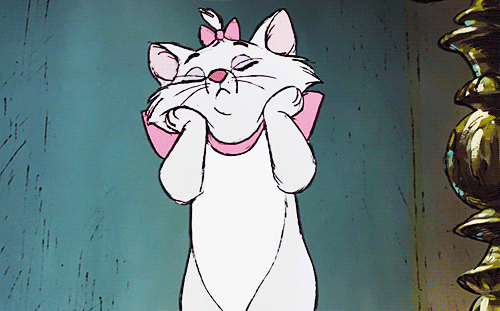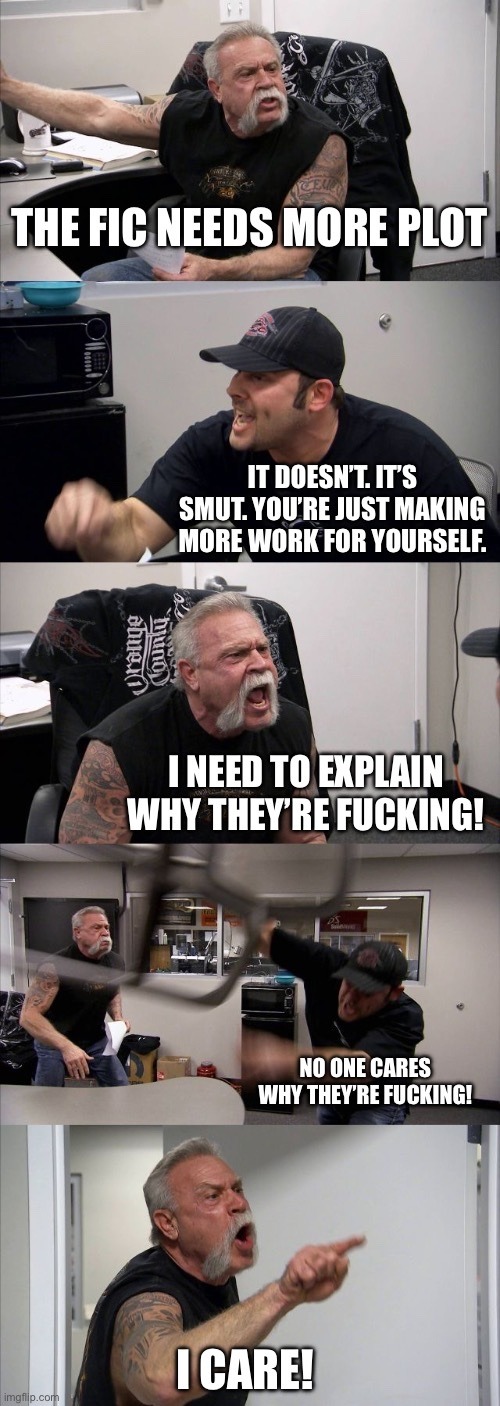#writing struggle
Text
being a writer is spelling disembowelment correctly on the first try but somehow always screwing up definitliely
#writeblr#writer problems#creative writing#writing#writer#fiction#fiction writing#write#writers#writers on tumblr#writer life#spelling#speling misteaks#that last tag pained me to type#but seriously#we're writers why can't we spell#writing words is literally our whole thing#writing struggle#writing stuff#shitpost#writer vibes#too many tags#writer's problems#writer's life#writer's block#writer's thoughts#writerscommunity#writers and poets
2K notes
·
View notes
Text
for all my writer friends:
whatever your word count, it's okay.
a small word count means you got your words across quickly and sweetly, while a large word count means more content for your readers.
sometimes chapters are big, sometimes they're small. whatever it is, it doesn't dictate your value.
you're doing so well, keep it up :D
#writer#writing struggle#writing problems#writing#writeblr#writers on tumblr#writerscommunity#word count#writer problems#fanfic#fanfiction#archive of our own#ao3#ao3 fanfic#fanfic writing#fanfics#fanfic authors#ao3 writer
161 notes
·
View notes
Text
Creatively, my mind is here:

And my requests are here:

#writing struggle#in the mood for darker vibes and maybe spooky?#xavier thorpe#xavier thorpe x reader#xavier thorpe imagine#wednesday imagine#wednesday#vampire!reader#witch!reader#any other spooky characters?
29 notes
·
View notes
Text
how does one even come up with a fic title that doesn't suck
#writing struggle#i am far from done but damn a working title would be nice#one that's like. not melodramatic or cringe or bland 😔#kicking my brain to spit out a title rn
19 notes
·
View notes
Text
I'm struggling creatively. I think it's a block. I've had a lot of personal chaos and family chaos going on all last month and some of this month.
I also had a day-long panic and dysphoria attack day before yesterday.
I'm well enough to do a spot of yard work, but ugh.
2 notes
·
View notes
Text
I've been trying to write for the past few days, and every time I open the google doc my mind goes blank. It's like all of a sudden I don't know how to write dialogue.
#writing struggle#I hate this#I have a list of ideas but I can't write any of them out#ugh#I guess it's also writers block#I hate it
4 notes
·
View notes
Text
Why is writing smut so time consuming? Like I’m writing on two WIPs right now and I just need to take a whole day to write the smut ahhh does anyone else struggle with this? Or is this just because I’m new at writing it? :D
Writing angst tho is the bomb. Can’t wait to get love lost out there.
9 notes
·
View notes
Text
Launching a new story is scary

Soon, I’ll be putting in your hands one of my children, a brand new story, and it also got me thinking. Currently, I’m obsessively editing and polishing it, and obsessing over the mistakes I’ve made, plot holes I had not fixed, words that sound off to a native speaker. I guess there’s always this gut-wrenching anxiety when publishing something new, be it a chapter, a drabble or a fully developed story: will people like it? Will they read it even if it’s a rare pair and my writing is not perfect? Will they love just as much as I do? The very same fear makes me hover over the publish button seconds too long, it makes me doubt my own writing.
But I also know it will never be perfect. The number of hits and kudos and bookmarks is not equal to the quality of my writing. The lack of comments doesn’t mean my story is not worth telling–because it is.
I started writing my stories with one goal in mind: to make an impact. It could be a small one–just to make someone’s day a bit better, to deliver food for thoughts, or maybe change someone’s point of view. I always wanted my stories to bring comfort–and from the comments I’m getting, I know I succeeded. And yet–the anxiety is screaming that my stories aren’t enough.
So, it’s okay to be scared. And at the same time, publishing new content despite that fear makes me–and all of you–brave because we act despite that fear. The fear doesn’t define our writing. Neither do the stats. It’s the story itself that counts.
#writing thoughts#writing journey#writing fear#writing fanfic#writing struggle#it's okay to be scared#i am scared too#publishing new chapters#story creating
4 notes
·
View notes
Text
why is it that i wait all day to write during the night and then the night comes i can hardly stay awake and need sleep.
0 notes
Text
today I found out I've used an em dash more times in my novel than I've used my main character's first name
#em dash#i regret nothing#you can pry this em dash for my cold dead hands#writer problems#writeblr#creative writing#writing#writer#fiction#fiction writing#write#writers#writers community#writers corner#writers on tumblr#writer life#writing stuff#writing struggle#shitpost#writer vibes#writer's problems#writer's life#writer's thoughts#writers and poets#too many tags#being a writer is#writer's block#character names#character creation#characters
22 notes
·
View notes
Text
average day in the life of a writer:
wake up past 1 pm
open your 300 words of writing
stare at it blankly, struggling to come up with ideas for hours
eat food
keep staring
write a sentence
erase the sentence because it sucks
close writing document
cry yourself to sleep at 4 in the morning because you'll never be able to make your dreams a reality
repeat
the RARE HOLY day in the life of a writer:
wake up around noon
open writing document
crank out 30,000 words in two hours
eat food
crank out another 30k (in an hour this time)
daydream
daydream more
have human interaction (god forbid)
go to sleep at a reasonable time (two in the morning)
never repeat because its impossible to get two of these in a row :(
#writing#writer#writing problems#im suffering can you tell#ao3#archive of our own#fanfiction writer#writing struggle#bad sleep schedules#its a canon event#fanfic#fanfiction#yeehaw#relatable
23 notes
·
View notes
Text


this one's inspired by @cringefailvox's time has changed the metaphor!
It was such a good read and I couldn't stop thinking about these three ever since.
#hazbin hotel fanart#fanart#hazbin rosie#hazbin vox#hazbin alastor#my art#sorry if the posing is kinda ooc i was struggling with putting them all on one piece of furniture#and nooo they couldn't sit properly#thank you so much for writing it#it was so amazing and just beautifully written
8K notes
·
View notes
Text
No Line
photo credit to curnblog.com
I have no thoughts, I can’t think of a line
Sometimes I feel I am in decline
So I pause and I try to take a break
Maybe it would end my losing streak
With words and phrases, I try to immerse
Hoping I would find an amazing verse
But all I can gain is just nothing
Except for this, you see I am struggling
So where did all the ideas go?
How can I catch them all with my…

View On WordPress
#lampangmanunulat#lampangwriter#no juice#no words left#poem#poetry#rhymes#words#writer&039;s block#writing#writing struggle
0 notes
Text

My constant struggle when writing PWP
#fanfiction#fanfiction writer#fanfiction writing#writing#writing struggles#writing fanfic#pwp fics#ofmd fanfic#writer problems#american chopper#writing memes
38K notes
·
View notes
Text
HOW TO GIVE PERSONALITY TO A CHARACTER
Giving personality to a character is an essential part of character development in storytelling, whether you're writing a novel, screenplay, or creating a character for a role-playing game. Here are some steps and considerations to help you give personality to your character:
Understand Their Backstory:
Start by creating a detailed backstory for your character. Where were they born? What were their childhood experiences like? What significant events have shaped their life? Understanding their past can help you determine their motivations, fears, and desires.
2. Define Their Goals and Motivations:
Characters often become more interesting when they have clear goals and motivations. What does your character want? It could be something tangible like a job or a romantic relationship, or it could be an abstract desire like happiness or freedom.
3. Determine Their Strengths and Weaknesses:
No one is perfect, and characters should reflect this. Identify your character's strengths and weaknesses. This can include physical abilities, intellectual skills, and personality traits. Flaws can make characters relatable and three-dimensional.
4. Consider Their Personality Traits:
Think about your character's personality traits. Are they introverted or extroverted? Shy or outgoing? Kind or selfish? Create a list of traits that describe their character. You can use personality frameworks like the Myers-Briggs Type Indicator or the Big Five Personality Traits as a starting point.
5. Give Them Quirks and Habits:
Quirks and habits can make a character memorable. Do they have a specific way of speaking, a unique fashion style, or an unusual hobby? These details can help bring your character to life.
6. Explore Their Relationships:
Characters don't exist in isolation. Consider how your character interacts with others. What are their relationships like with family, friends, and enemies? These relationships can reveal a lot about their personality.
7. Show, Don't Tell:
Instead of explicitly telling the audience about your character's personality, show it through their actions, dialogue, and decisions. Let the reader or viewer infer their traits based on their behavior.
8. Create Internal Conflict:
Characters with internal conflicts are often more engaging. What inner struggles does your character face? These can be related to their goals, values, or past experiences.
9. Use Character Arcs:
Consider how your character will change or grow throughout the story. Character development is often about how a character evolves in response to the events and challenges they face.
10. Seek Inspiration:
Draw inspiration from real people, other fictional characters, or even historical figures. Study how people with similar traits and backgrounds behave to inform your character's actions and reactions.
11. Write Dialogue and Inner Monologues:
Writing dialogue and inner monologues from your character's perspective can help you get inside their head and understand their thought processes and emotions.
12. Consider the Setting:
The setting of your story can influence your character's personality. For example, a character who grows up in a war-torn environment may have a different personality than one raised in a peaceful, affluent society.
13. Revise and Refine:
Don't be afraid to revise and refine your character as you write and develop your story. Characters can evolve and change as the narrative unfolds.
Remember that well-developed characters are dynamic and multi-faceted. They should feel like real people with strengths, weaknesses, and complexities. As you write and develop your character, put yourself in their shoes and think about how they would react to various situations. This will help you create a compelling and believable personality for your character.
#writeblr#writing advice#creative writing#writerscommunity#writer problems#writing resources#writing community#writers on tumblr#writers block#the writer struggle#writing tips#writers#uservolkova
11K notes
·
View notes
Text
((honestly what seems to stress me out most nowadays is like blog research to find out how to make first meetings work... i am always afraid i will mess it up or just plain fuck up everything... it REALLY messes with my head and it is exhausting >_< i think i might be the only person with this problem but i am glad i am soon done with it again.
Apologies to everybody for my clumsy shit... i am not a fan of it. >_<))
1 note
·
View note